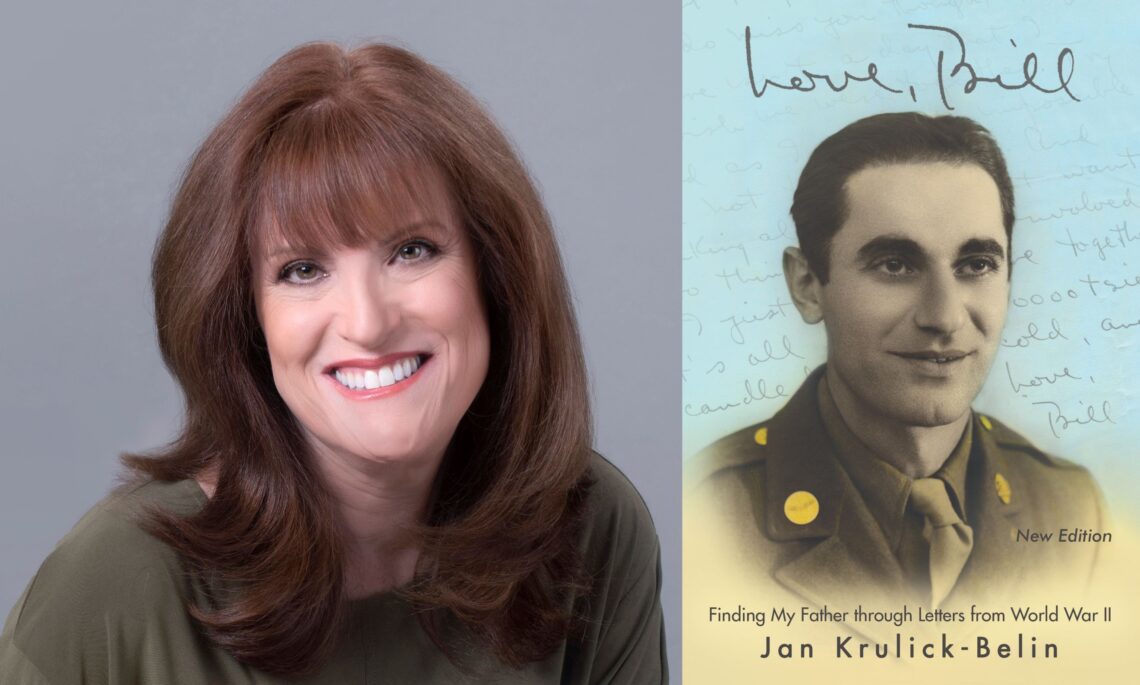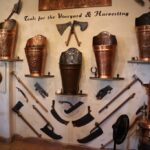Photo Courtesy of Jan Krulick-Belin
In “Love, Bill,” Jan Krulick-Belin embarks on a life-changing pilgrimage of the heart to find the father she thought that she had lost forever. Through love letters that he had written to her mother during World War II, Krulick-Belin is led on an extraordinary journey following her father’s actual footsteps.
Somewhere in North Africa
March 10, 1943
Dear Dot,All the love, darling, that I haven’t been able to give you for these many months, and all that I haven’t written into my letters has been choked up in my heart. Tonight I must tell you. You’re the ship that will carry me safely home, the armor that will shield me from harm, and the breath that comes into my body. Every wonderful African sunrise is the light that shines from your eyes, and every sunset the curve of your lips. The sea that I saw the other day with my CO was the color of your eyes, but far less beautiful. The lapping of the waves upon the shore was your voice whispering to me. Wherever I go, whatever I see, the wondrous, the magnificent and the enchanting are always you. There is nothing that is good and kind that crossed my path that doesn’t make me think of you. I’m hungry and thirsty, I’m tired and weary, I’m savage and beastly—I’m all that is wretched, only because we are apart. One kiss from your lips and hunger and thirst would flee; one touch from your hands and I’d be gentle and rested.
Love,
“Love, Bill” by Jan Krulick-Belin
Bill
A museum and art consultant, and art and jewelry historian with more than 40 years of experience at such institutions as the Corcoran Gallery of Art, Denver Art Museum, Beaumont (Texas) Art Museum and Smithsonian Institution, Krulick-Belin retired as director of education at the Phoenix Art Museum and still works with museums, art organizations and private collectors as well as lectures widely on art and jewelry topics.
Images Arizona recently caught up with Krulick-Belin to ask the author a few questions about “Love Bill” — the latest selection in its summer book club.
What motivated/inspired you to write this book?
I never intended to write the book. It began as just a personal journey when, a year before her own death, my mother gave me the box of more than 100 letters that my father wrote to her during WWII. My father died when I was only six years old, and my mother would rarely talk about him. It took me another five years before having the courage to open the box and discover my father through those letters.
I followed his footsteps during the war years from Upstate New York, to North Africa and then Italy. I also vowed to find the family he befriended while stationed in Morocco, but never had the time to reconnect with after the war. As the story got more amazing, coincidental, and moving, I was convinced by friends and family to write the book. I’m so happy I followed their suggestion. It was a wonderful catharsis for me as well as a way to pass on our family legacy to my nieces.
What themes did you aspire to tackle with this particular work? Did any other themes reveal themselves to you during the writing process?
Family legacy; fathers and daughters; WWII in North Africa; the plight of the Jews in Europe and North Africa during the war.
What or how are you hoping your book makes readers feel? What other takeaways do you hope they have?
I hope that readers accompany me on my journey and can relate to the need to discover one’s past and family legacy. I think that anyone who has grown up missing a parent for whatever reason can relate. I also think that many women can relate to the strong bond we have with our fathers. I hope that I can stir up emotions and get people to think about their own families.
I also wanted to give life and a voice to my father who was taken from me when we were both way too young. I wanted to put a spotlight on one of the “Greatest Generation,” who sacrificed so much to protect our freedoms but never really considered themselves heroes. I wanted to tell people about a part of the war that is unfamiliar to most. I’ve also been able to help people know what to do with their own collection of war letters that they’ve inherited.
What are some of your own takeaways? Specifically, did your characters teach you anything?
I learned a lot about myself and what I’ve inherited from my father. I learned that, like my father, I’m a good writer — even though I was terrified to tackle this book. I learned about perseverance and patience.







Comments by Admin